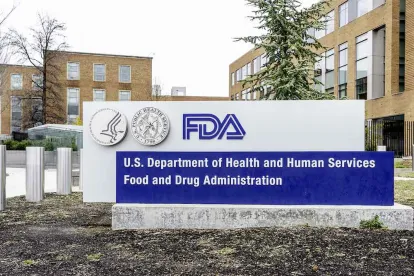On December 15, the U.S. Food and Drug Administration (FDA) issued a draft guidance, titled “Circumstances that Constitute Delaying, Denying, Limiting, or Refusing a Drug or Device Inspection” (the “Inspection Draft Guidance”), which clarifies the types of behaviors that FDA considers to be inappropriately delaying, denying, limiting, or refusing access to an inspection, each of which constitutes adulteration of a drug or device under the Federal Food, Drug, and Cosmetic Act (FDCA).[1] The Inspection Draft Guidance clarifies certain behaviors described in FDA’s previous guidance on the subject (the “2014 Guidance”) and, most significantly, expands the previous guidance to apply to medical device manufacturers.
What is New in the Inspection Draft Guidance?
The most notable aspect of the Inspection Draft Guidance is that it newly applies to device manufacturers; the 2014 Guidance applied only to drug manufacturers.
The Inspection Draft Guidance also provides additional examples of behaviors that either constitute delaying, denying, limiting, or refusing to permit entry for an inspection, or that constitute a reasonable explanation. The new examples include the following:
-
FDA may consider a delay during an inspection unacceptable if a facility agrees to the pre-announced inspection date, but when the investigator enters the facility, the necessary facility personnel are not available, or the firm’s management informs the investigator that operations are shutdown, without providing a reasonable explanation;
-
FDA may consider a delay during an inspection acceptable if a device facility does not provide an FDA investigator access to environmentally controlled areas until the investigator accommodates the facility’s precautionary measures to prevent contamination and risk to personal safety;
-
FDA may consider a delay in record production acceptable if the records requested are stored off-site and require reasonable additional time to collect;
-
FDA may consider a limitation to facility access unacceptable if the firm interrupts production activities to prevent FDA investigators from observing production operations;
-
FDA may consider a limitation to photography acceptable if the facility can document that taking photographs of any raw material or assembly would adversely affect product quality;
-
FDA may consider a limitation to records unacceptable if a facility identifies an electronic record as the original but does not provide an electronic copy of that record to FDA pursuant to FDA’s request; and
-
FDA may consider a limitation to records unacceptable if a facility maintains electronic records but omits or limits the data contained in the electronic records when providing electronic copies of the records to FDA, including actions such as removing data columns in a spreadsheet, removing data from the electronic record when providing the record to FDA, exporting data into reports without including all of the data fields (unless otherwise requested by FDA), or locking the electronic worksheet so that the data cannot be searched, sorted, or analyzed by FDA.
As in the 2014 Guidance, the Inspection Draft Guidance explains that FDA broadly interprets the terms “delay,” “deny,” “limit,” and “refusal to permit entry or inspection,” and warns that a product may be deemed “adulterated” if a company denies, limits, delays, or refuses entry.
Once FDA finalizes the Inspection Draft Guidance, medical device manufacturers will be subject to the principles and recommendations outlined in the guidance. Medical device manufacturers should be prepared to incorporate the principles in the Inspection Draft Guidance into manufacturing site policies and standard operating procedures.
FOOTNOTES
[1] See 21 U.S.C. § 351(j).




 />i
/>i

